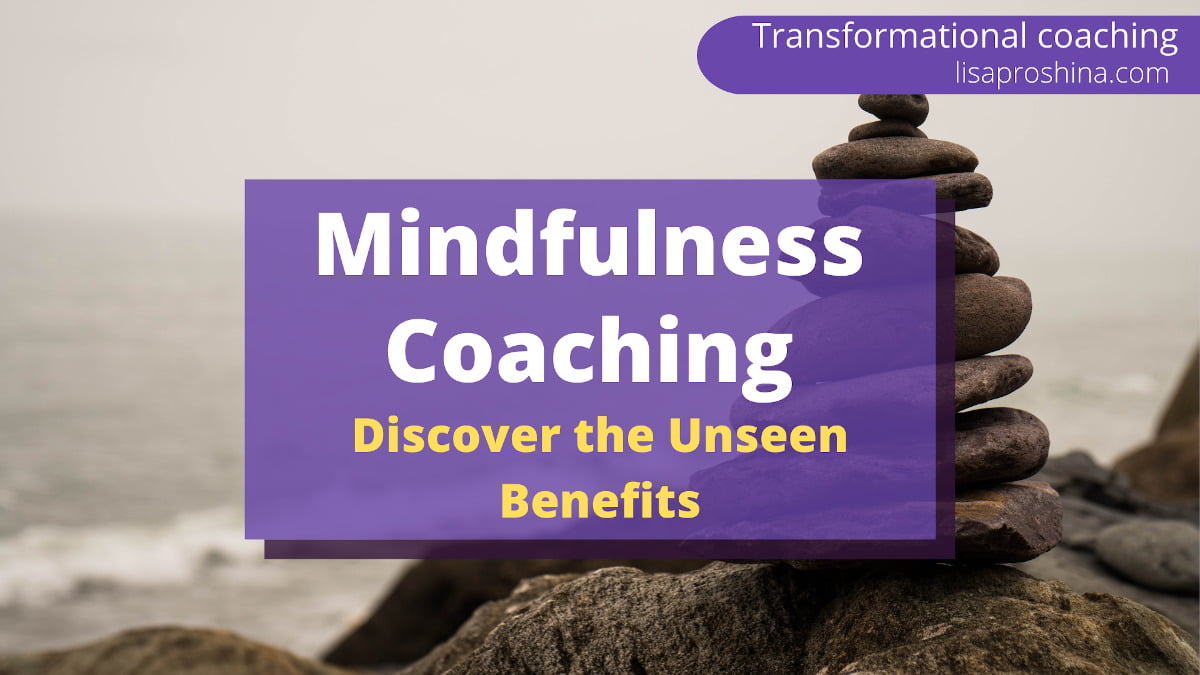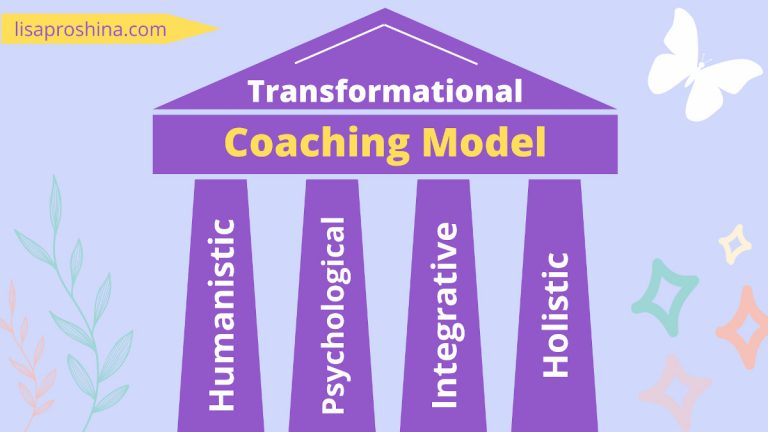Mindfulness Coaching | Discover the Unseen Benefits
Mindfulness coaching offers a range of benefits. It can help boost emotional intelligence, resilience, communication, collaboration and productivity. It provides an opportunity to step back and gain perspective on challenging situations and to remain calm under pressure. Mindfulness training can also reduce anxiety and stress, leading to improved mental clarity and physical wellbeing.
Table Of Contents
1. What is Mindfulness Coaching and why is it important?
Mindfulness coaching is an evidence-based method to promote mental health and well-being by training your body and mind to be more aware and responsive. The aim is to cultivate inner peace, resilience, clarity, balance, and compassion through practices such as meditation, breathwork and cognitive behavioral therapies. Mindfulness offers a way of living life from the inside out, with greater awareness and acceptance of the present moment. By enhancing self-awareness and understanding, mindfulness can enhance overall physical and mental wellbeing.
2. The Benefits of Mindfulness Coaching
A. Improved Mental and Physical Health
Mindfulness coaching can have a profound impact on both physical and mental wellbeing. It has been found to reduce blood pressure, elevate moods, and even bolster the immune system for those dealing with serious illnesses like cancer. All of these benefits point to mindfulness coaching being an invaluable tool for improving health and wellbeing.
B. Stress Management
When we understand how our own thoughts impact our body chemistry we can use mindfulness practices such as tactical breathing exercises that provide further control over our response to stressors in the environment or workplace. It’s highly recommended that companies offer stress management programs that include mindfulness training rather than relying only on meditation as its effects are greater when combined with cognitive behavioral therapies.
C. Improved Focus and Concentration
Mindfulness coaching helps to cultivate a heightened sense of focus and concentration. What was once elusive can become second nature with the guidance of a coach who is trained in helping you learn techniques to sharpen your focus. In turn, your productivity can soar and you can make significant strides towards accomplishing your goals.
D. Enhanced Self-Awareness
Mindfulness coaching helps enhance self-awareness by teaching us to pay attention to our thoughts, feelings, and actions. By doing this, we can gain insight into why we act or think the way we do & cultivate a greater understanding of ourselves. With increased awareness & acceptance of our authentic selves, we can more carefully choose how to respond in any given situation.
E. Improved Relationships
Mindfulness coaching can help you build healthier relationships, both with yourself and others. From self-reflection and heightened awareness to developing a more compassionate attitude towards yourself and those around you, mindfulness coaching can help improve your interpersonal connection. In addition, when you learn to better regulate your emotions and prevent getting overwhelmed by stress, it makes it easier to communicate openly and gain understanding from those around you.
3. Practical Ways to Incorporate Mindfulness Coaching into Your Life
A. Regularly Practice Mindful Meditation
Mindfulness meditation is an effective way to cultivate awareness and focus on the present moment. This practice increases self-awareness, allowing us to better focus on our thoughts, emotions, and physical sensations in order to reduce stress and gain clarity. Regular mindful meditations such as body scans or seated meditations involve tuning in to the breath, being aware of body sensations, and releasing any tension we may be harboring. With regular practice, we can become more resilient to everyday stress and create space for increased creativity and productivity.
To reap the full benefits of mindfulness meditation, it’s important to set aside a designated amount of time each day to sit with ourselves without distraction. This can be done through guided meditations or simply paying attention to the breath—both are equally effective in calming the mind.
B. Make Time for Reflection and Reflection Journaling
Reflection is an essential part of mindfulness coaching. Through reflective practices such as journaling or dialogue with a facilitator, we can gain insight into how our emotional states affect our daily life choices. By reflecting on personal beliefs, motivations, and habits, we can gain deeper understanding into our thought patterns and develop concrete strategies for managing stress in healthier ways.
Reflection journaling is a great place to start when considering incorporating mindfulness into one’s life. Taking time each morning or evening Reflection journals can help you keep track of your thoughts and feelings throughout the day so that you can notice patterns over time that you may want to shift.
C. Schedule Check-Ins With a Mindfulness Coach
Working one-on-one with a certified mindfulness coach can be invaluable for sustaining consistent practice over time. A mindfulness coach is specially trained in helping individuals learn how to better regulate emotions while cultivating self-compassion during challenging times. Coaches also help clients establish healthy boundaries between different areas of their lives (e.g., home vs work) so that they can avoid burnout down the line.
4. Tips for Getting Started With Mindfulness Coaching
A. Set Goals for Yourself
It’s important to remember that progress takes time when it comes to incorporating new practices into our routine. To stay motivated while starting out on your journey towards creating a mindful life it’s important firstly set realistic goals that align with your values.
Write them down somewhere so they are tangible reminders of what you hope to achieve even when you do not feel inspired by the practice itself anymore.
B. Incorporate Mindfulness Into Your Daily Routine
Creating small opportunities throughout your day where you can pause, reflect, connect, appreciate can make all the difference.
Try these 4 simple practices each week: take 5 minutes out of every hour at work ( equivalent breaks )to stretch & breathe deeply; observe one thing around you each day; count 10 breaths; express gratitude every night before bedtime.
C. Stay Focused on the Present Moment
Mindfulness is a powerful tool that can help you stay in the present moment and appreciate what’s around you. It can be used in daily life to stay focused on the task at hand or to take time out for yourself, to reflect and refocus so you can move forward with greater clarity.
When we hear the phone ringing, rather than hastily answering, take a couple of minutes to take a few deep breaths. In times when we feel overwhelmed and stressed, consciously concentrating on our breathing is a straightforward yet effectual approach for bringing us back to the here and now. Additionally, carving out small periods of respite during the day is an excellent way of preventing any interruptions that could potentially disrupt our objectives and ambitions.
Here you can find more information about being present and the benefits I’ve experienced after reading Eckhart Tolle A New Earth
FAQ
What are the ten advantages of being mindful?
Mindfulness is a practice of self-awareness and attentiveness. It helps in calming the mind and body, relieving stress, reducing negative emotions, and improving concentration. Here are some of the key benefits of mindfulness:
- Better decision making skills
- Improved physical health
- Increased focus & clarity
- Enhanced creativity & productivity
- Reduced anxiety & depression
- Improved relationships & communication skills
- Improved sense of wellbeing & joyfulness
- Greater sense of presence & ability to live life in the moment
- Increased mental resilience & strength to cope with difficult situations better.
- A deeper appreciation for life’s experiences.
What are the advantages of practicing mindfulness?
Mindfulness training has many benefits, which can help improve both physical and mental health. Here are five of the main benefits:
- Decreased stress levels – Mindfulness can help to reduce anxiety and increase control over emotions.
- Improved concentration – Increased mindfulness can lead to enhanced focus and ability to stay on task for longer periods.
- Heightened self-awareness – Being more mindful of thoughts, feelings and sensations helps develop self-knowledge for better decision making.
- Better relationships – Learning how to be present in the moment with full attention helps create deeper connections with those around us.
- Physical well-being – Practicing mindfulness regularly may contribute to improved immune system functioning and reduced pain levels.
What are the four elements of mindfulness practice?
- Take Notice: Pay attention to your surroundings and how it affects your body. Be mindful of the thoughts and emotions you experience.
- Take Time: Take few moments away from the pressures of everyday life to focus on yourself and what matters to you.
- Touch Base: Check in with yourself regularly, asking questions such as ‘how am I feeling?’, ‘what do I need right now?’ and ‘how can I take care of myself today?’
- Talk-through: Talk through difficult emotions or experiences with a supportive listener.
What are the five key elements of mindfulness practice?
Mindfulness practice is all about being present in the moment. It involves paying attention to your thoughts, feelings, and physical sensations without judging them or getting caught up in them. Here are five basics of mindfulness practice:
- Breathe deeply and observe each breath.
- Focus on your thoughts and emotions without judgment.
- Notice what you are sensing in the present moment.
- Be kind and compassionate with yourself.
- Accept whatever arises without struggling or trying to change it.
Conclusion
These are just a few of the many benefits of mindfulness coaching. Whether you’re looking to increase personal wellbeing, foster enhanced collaboration and communication among team members or improve productivity, implementing mindfulness coaching is an excellent strategy. For employees and teams alike, there are countless unseen rewards that come with embracing mindful practices. Don’t wait any longer – discover the hidden mindfulness coaching benefits today.
Take the first step toward a more successful, healthy workforce and experience all the mindfulness coaching benefits for yourself. With a little dedication and commitment, improving emotional intelligence and fostering resilience can be achieved through powerful practice. Unlock your potential and reap the rewards of mindful living today – you won’t regret it!







